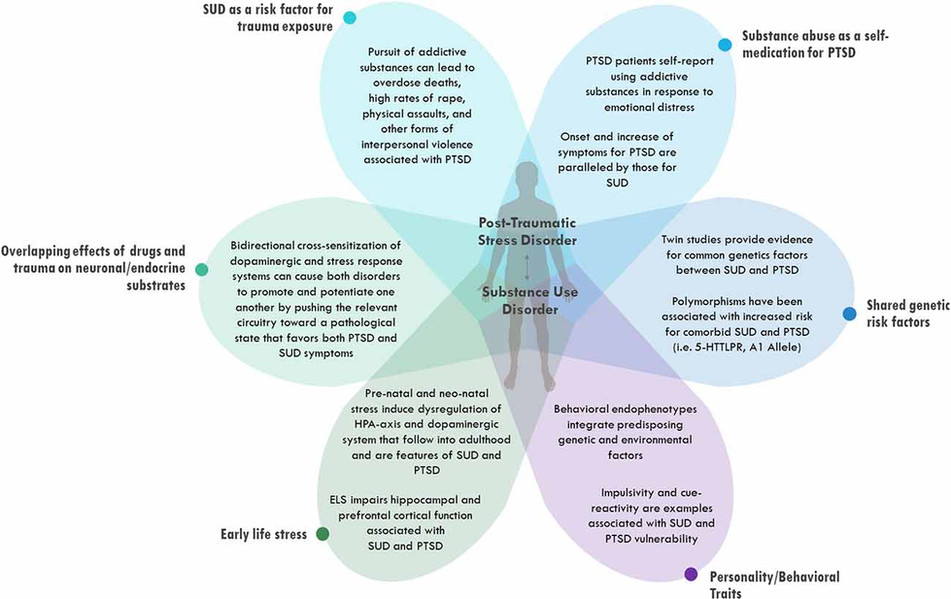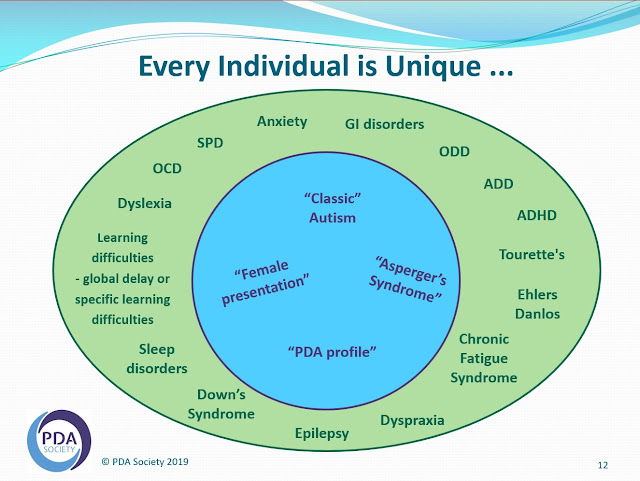Signs you have a strong presence
12 signs you have a strong presence that other people can't help but admire
Does everyone notice you when you enter a room?
Do people sit up and listen when you have something to say?
If you can answer yes to those questions, then you might have a natural powerful presence.
Here is a list of signs that indicate you have a strong presence other people can’t help but admire.
1. They Gravitate Towards You
When someone has a strong presence, people tend to hang around them often.
If you’re noticing that people are always around you, that’s a clear sign you have a strong presence and they’re attracted to your aura.
When you’re having a conversation with them, they might begin to slowly lean in a bit, or they might tilt their heads.
These are commonly subconscious responses that we naturally have when we want to engage with someone.
So whether they’re aware of it or not, but beneath the surface, they enjoy being around you because of your strong presence and charisma.
So many people are afraid to speak their minds because they don’t want to be criticized.
They don’t want to be seen as “weird” for thinking differently than everyone else.
But you’re not like this.
You have to express what you feel because it would be inauthentic not to. It would be superficial, and in your mind, nothing good ever comes from superficial communication.
You know that if you’re going to develop meaningful connections with others and make a positive impact in life, then you have to ignore the naysayers and express yourself fully. It’s the only way.
This is why you have a strong presence and aura about you. Not many people tell it like it is, so you come across as confident and honest.
3. People Maintain Eye Contact With You
Much can be told from someone’s eyes, especially where their eyes are pointed at.
It’s because the eyes are an indicator of someone’s attention. If people maintain eye contact with you, it means their attention is focused on you.
If people maintain eye contact with you, it means their attention is focused on you.
Perhaps they’re listening intently to what you have to say, or their eyes are attracted to your energy because of your strong presence.
Whatever the reason may be, it means that they’re captivated by you and what you have to say.
And that is a clear sign of charisma and presence.
4. They Listen Closely And Consider Your Opinions
Listening to someone is one of the ways to show how much we respect them. It shows that their words and thoughts matter, and that they’re being heard.
Having their opinions considered is also a sign of respect. It shows that what they’ve just said has some form of value.
So when someone takes the time to listen to what you have to say, it can mean more than simply wanting to hear your take on topics.
When they make eye contact, lean in, absorb what you’re saying without waiting for their turn to speak, it shows you that you are someone that they value and they’re attracted to your aura and presence.
Learning is what gets your juices flowing. When you learn about someone else, it makes you feel like you’re entering a whole new beautiful, and complex world.
This makes you a fantastic conversationalist because the other person feels like they’re the only person on the planet at the time.
This immediately puts others at ease and makes them comfortable.
You know that too many people’s egos drive conversations. But when you’re in a conversation, egos are checked at the door.
When you allow yourself to be immersed in someone else’s world through listening, you tend to have strong empathy which gives you a powerful presence.
6. They Mirror You
They say that imitation is the sincerest form of flattery. A study found that one of the reasons why people mimic certain behavior and actions is because it’s a form of learning for them.
So when you see someone ordering the same coffee as you to try it out or start watching a series that you enjoy, it’s a signal that they’re sending that you’re on their minds.
They look up to you and want to try implementing what you do into their own lives because they see it as something worth doing.
Not only do you have a strong presence, but you’re also a role model to other people.
7. They Openly Laugh At Your Jokes
Hearing someone laugh at your jokes is one of the more fulfilling experiences in life.
It means that they enjoyed what you said so much that they couldn’t control themselves.
A study found that laughter — a sense of shared enjoyment and amusement — increases the satisfaction felt in a relationship.
If people are in a positive mood around you that they’re comfortable enough to burst out laughing, then they’re probably attracted to your charisma and listen intently to your jokes.
8. People Are Honest With You
Being honest is an integral part of any healthy relationship.
But most importantly, being honest goes hand in hand with showing respect.
When you lie, you’re taking part in an act of deception. Dramatic, I know. But it’s true, even a small lie is still robbing someone’s right to the truth.
Dramatic, I know. But it’s true, even a small lie is still robbing someone’s right to the truth.
So when you choose to tell the truth, even if it’s painful to say out loud, what you’re really showing that person is that you respect them.
Therefore, if you notice people simply can’t lie to you, that you’re always the one to know the truth first, you can rest assured you likely have a strong presence and people respect you.
9. You Respect Yourself
You can’t have a strong presence if you don’t respect yourself.
After all, a key part of gaining the respect of others – to first respect yourself.
When you respect yourself, you’re showing other people how you expect to be treated (and what you won’t tolerate under any circumstances).
Now, this isn’t to say that people with little to no self-respect aren’t respected by other people. They can be.
But the truth is, how we treat ourselves is how others see fit to treat us. If you’re constantly disrespecting yourself, what’s to stop others from doing the same?
On the other hand, if you hold yourself up to a high standard, others will naturally follow suit.
So, if you feel like you respect yourself and live life with integrity, there’s a good chance that you also have strong presence and charisma.
10. You’re never left hanging
Have you ever been ignored by someone?
It’s one of the worst things in the world. You end up questioning every experience with that person, wondering what you did that was so bad for them to give you the cold shoulder.
It hurts.
And then after you’ve got through the initial pain/confusion/sorrow, then comes anger.
Anger that they can’t even be bothered to tell you what you did wrong. Or, to explain what made them upset and react in such a dramatic way.
And why aren’t they breaking the silence and explaining themselves?
It’s because they don’t respect you. Put simply, they don’t care about you or your feelings.
Now, on the flip side, when you have a strong presence that people can’t ignore, no one leaves you hanging.
You send a message? You’ll get a reply.
You have a fight with your partner? They’ll talk things through, heck, they’ll even argue with you, but they won’t do you the disservice of ignoring you point-blank.
Again this links back to what I mentioned earlier – when people respect you, they also respect your time. They’re not going to leave you waiting to hear from them.
But they also respect your emotions. Even if ignoring you after an argument is an easy option, they recognize that you don’t deserve that.
11. People don’t try to manipulate you
When you have a strong aura and presence, people don’t tend to treat you unfairly.
If they respect your boundaries, they’ll respect you when you say no. And instead of trying to convince you otherwise with unhealthy tactics like manipulation, they’ll accept that you mean what you say.
And this is a common theme. Look at victims of abuse. Do their perpetrators respect them?
Not in the slightest.
When someone hurls swear words at their partner are they respecting them? When a narcissistic parent guilt trips their child, are they treating them respectfully and with love?
No. Where there’s abuse, there’s no respect.
Where there’s abuse, there’s no respect.
So if the people around you treat you well, and never even toe the line of manipulation, you know they have nothing but respect and consideration for you and you undoubtedly have a strong aura.
12. People don’t judge you
Having a strong presence tends to mean that others accept you even with all your weird and wonderful quirks.
Even if they don’t necessarily love your sense of style, or the car you drive, or where you choose to spend your weekends, if they respect you as a person, they’re not going to judge you.
This is because true respect comes from admiring and appreciating your inner qualities.
People respect those who are:
- Kind
- Live life with integrity
- Honest
- Respectful towards others
- Empathetic
- Trustworthy
So if you have most of these qualities, and people do genuinely respect you, they won’t care about external factors.
The color of your hair or how many piercings you have become irrelevant in the face of being a decent human being. One who’s worthy of being respected.
Did you like my article? Like me on Facebook to see more articles like this in your feed.
6 Signs That You Have A Strong Personality And Strong Aura That Are Intimidating Others
We live in a society that is based on first impressions. People constantly judge other people. They love focusing on the cover of the book, rather than its content. If you ask me, I believe they are terrified of the things that are not familiar to them.
They are afraid of what they might discover deep into the unknown. But you should always remember that regardless of what you do, people will always have something to say. The most important thing is how you see yourself.
Have you ever been told that your presence is intimidating?
If the answer is yes, then this article will speak to you on many levels. You have to remember that you don’t owe anything to anyone. Accept yourself. Be proud of who you are. (1)
Accept yourself. Be proud of who you are. (1)
You have a big heart, a brilliant mind, and a sharp tongue. You simply cannot stand lies. As an alpha, you feel the responsibility to always tell the truth, regardless of how bad or good it is.
You would rather be broken by the truth than comforted by a sweet, convenient lie. But that is you. Other people don’t always agree with this theory. That is exactly why most of them perceive you as a heartless human being.
2. WHERE OTHERS SEE PROBLEMS, YOU SEE SOLUTIONSYou don’t go with the flow and you don’t believe in destiny. To you, everything that happens is just a consequence of your actions.
As a result, you never waste your time on the problems. Instead, you focus on finding, new, creative and innovative solutions. That is the only way to get things done.
That is the only way to get things done.
You have a different way of thinking. You know exactly who you are because you’ve spent your whole life reflecting on yourself and working hard on your spirituality. Your brain doesn’t function the same way as everyone else. You have a wise mind that surpasses your years. That is exactly why most people often find you arrogant.
4. YOU HAVE NO TOLERANCE FOR IGNORANT PEOPLEYour open mind, alpha personality and intense aura could never survive around ignorant people. Many people say that you have a very short temper, but the truth is… You are just allergic to stupidity and immaturity.
Judgmental, short-sighted and envious people make you lose your patience. Simple as that.
5. YOU LOVE LEARNING NEW THINGSAlphas are always open to new things. Whether it’s a new fun experience, a trip to the unknown, a fresh new idea, a life lesson wrapped up in a challenge that changes them to their core, they enjoy learning new things.
The only food their soul needs is knowledge. The only food their heart wants is true, all-consuming love.
6. YOU DON’T HAVE TIME FOR SMALL TALKThe one thing that alpha people could never stand is small talk. If you are someone who recognized themselves in the article, you would probably admit that as an alpha person you spend a lot of your energy on moving forward in life.
That means that your whole life is pretty much based on doing the things that make your soul flourish and mind expand. You have no time for meaningless, small talk. It is just who you are.
Stephanie Reeds
A professional writer with many years of experience in the fields of psychology, human relationships, science, and spirituality. If you have a general question or comment please fill out the form and we will get back to you as soon as possible https://curiousmindmagazine.com/contact-us/
15 signs that you are a mature person
August 10, 2021 Life
These qualities say that over the years you not only grow up, but also gain wisdom.
1. The ability to introspection
You can look at your life through the eyes of an outside observer, take a neutral position in order to evaluate actions, thoughts, emotions. This approach allows you to better understand your strengths and weaknesses and decide in which direction to move on.
2. Self-control
You first think and then act, you can calculate the expediency and consequences of actions. An infantile person lives with emotions and momentary desires. Mature - does not break down on loved ones, knows how to remain silent if a stupid conflict is brewing.
3. Gratitude
You have learned to be grateful for what happened to you and what you managed to avoid. You appreciate the people who make you happy and don't take them for granted.
4. Open-mindedness
You stopped judging a book by its cover, and people by formal signs and stereotypes, not in words, but in deeds. Teenage maximalism no longer prevents you from realizing that the world is not black and white, those around you can be different from you and remain good, and sometimes there are several correct opinions.
5. Building Boundaries
You understand what is acceptable to you in relationships - love, friendship, work - and how far you are willing to go, what to sacrifice to keep them. And if someone violates the boundaries of what is permitted, you will act, discuss, and not pretend that nothing happened and everyone lives like that.
6. Strong moral standards
You view your actions not through the lens of “what people will think” or “what if someone sees”. A mature person has defined moral boundaries. It is not the inevitability of punishment or possible condemnation that warns him against wrong deeds, but a clear realization that this is unacceptable. Therefore, he does not do things that are dubious for himself, even if no one sees and does not know.
7. Responsibility
You are responsible for your words and actions, do not promise the impossible, do not shift decisions to another. A mature person realizes that the quality of his life is entirely his responsibility. External circumstances can make their own adjustments. But if you continue to complain that everything is bad, but do nothing to change the situation, then you are more of an infantile person, and not a victim of circumstances.
External circumstances can make their own adjustments. But if you continue to complain that everything is bad, but do nothing to change the situation, then you are more of an infantile person, and not a victim of circumstances.
8. Self-acceptance
You have learned to accept yourself as you are, with all your strengths and weaknesses. This does not mean that you need to stop improving and correcting shortcomings. But it’s worth learning to be satisfied with yourself now, at any stage of the path to the ideal, because this road has no end and it’s a shame to spend your whole life hating and reproaching yourself.
9. Patience
You stopped relying only on instant results and learned to wait for the fruits of your labor. For some things to happen, it is not enough to want them - you need to work hard. And even this does not guarantee that you will achieve your goal.
10. Independence
You understand that no one should solve your problems. A mature person does not act at random in the hope that someone will help swim out of the abyss. To spend money on a trinket and leave the family without food, thinking that parents or friends will throw money in, is infantilism. Correcting behavior so that in the event of a problem situation there is an opportunity to solve everything on your own is an act of a mature person.
A mature person does not act at random in the hope that someone will help swim out of the abyss. To spend money on a trinket and leave the family without food, thinking that parents or friends will throw money in, is infantilism. Correcting behavior so that in the event of a problem situation there is an opportunity to solve everything on your own is an act of a mature person.
11. Ability to learn lessons
Learn from mistakes, but not everyone. A mature person learns from failures, recognizes similar situations and does not allow repeated failures.
12. Constructive interaction with reality
You don't run away from problems, don't close your eyes to them, don't think that they will somehow resolve themselves. A mature person recognizes difficulties and looks for ways to cope with them.
13. Honesty
Most of the time you don't feel the need to lie. On the way to maturity, you have surrounded yourself with people with whom this is not required: you do not need to wear masks and embellish reality. If you still have to lie, a mature person is aware of why he does it. Trying to protect the feelings of your neighbor with lies and the desire to manipulate him are not the same thing.
14. Ability to build relationships
A mature person realizes that he is not the center of the Universe, therefore he knows how to build equal partnerships, in which he not only takes, but also gives. He is able to be compassionate, supportive, attentive and genuinely interested, and accept help without feeling vulnerable.
15. Realistic-optimistic view of the world
You really assess the situation, but do not lose faith in the best and presence of mind. A mature person understands that good things cannot happen continuously, there are failures. But the black stripes end, especially if you do not give up. However, pessimism and defeatist moods can lead to the fact that the forces will not rejoice even on truly bright days.
Can you complete this list? Share in the comments.
Read also 🧐
- QUIZ: How much do you annoy others?
- How to be an ordinary person
- 9 questions we are afraid to ask ourselves
Anxiety disorder: symptoms, diagnosis and treatment
Psychotherapist
Krashkina
Irina Ivanovna
Experience 32 years
Psychotherapist, candidate of medical sciences, member of the Russian Professional Psychotherapeutic League
Make an appointment
Anxiety disorder is a type of neurotic condition in which a person experiences continuous anxiety about life circumstances, their appearance and relationships with people around them. Staying in this state for a long time creates uncomfortable living conditions for a person, which become the reason for him to withdraw into himself, not to develop his own abilities and limit his social circle.
Symptoms and signs
It is believed that when an anxiety disorder appears, the symptoms are as follows:
- severe form of anxiety and emotional stress before the onset of panic attacks;
- frequent mood swings;
- persistent sleep disorder;
- constant conflicts with others;
- reduced acuity of reactions and inhibited thinking;
- increased sweating, rapid pulse;
- fatigue and weakness, leading to a decrease in performance;
- complaints about the appearance of pain in different parts of the body.
These symptoms of an anxiety disorder are signs of autonomic and mental disorders.
The hallmarks of symptoms of generalized anxiety disorder are:
- total manifestation of anxiety before any life circumstances;
- inability to concentrate on domestic activities or work;
- constant motor voltage;
- inability to relax;
- indigestion and stomach pain;
- heart disease.
Symptoms of an anxiety-depressive disorder occur against the background of constant depression:
- lack of interest in the manifestations of life and close people;
- lack of positive emotions;
- sudden feeling of fear;
- vegetative disorders - rapid pulse, shortness of breath, lack of air, increased sweating, proximity to fainting, etc.
Causes of the onset and development of the disease
Experts believe that the following factors contribute to the appearance of the disease:
- the presence of persistent circulatory disorders, hormonal failures or chronic heart disease;
- a chronic form of dependence on alcohol, drugs, psychoactive substances, as well as a sharp cessation of their use;
- craniocerebral injuries and their consequences;
- being in a situation of prolonged stress;
- character traits - melancholic temperament, disturbing accents in the temperament of the character;
- tendency to exaggerate dangers due to their high susceptibility;
- neurotic and mental disorders: depression, neurasthenia, hysteria, schizophrenia, paranoia, various manias;
- mental trauma in children at an early age and in adults in extreme situations - war, earthquake, being in a state close to death, loss of a loved one or his support, and others.
Psychologists view the process of anxiety in different ways:
- adherents of psychoanalysis believe that the reason is the regular suppression of their own desires;
- the second believe that the reason is the break in the connection between the stimulus and the response of the psyche to the stimulus;
- still others believe that the reason is in the reaction of the psyche to the distorted mental images of a person.
Disease classification
Anxiety disorder according to the ICD is a neurotic disorder along with fears, suspiciousness and post-traumatic disorders. One of the main signs of an anxious personality disorder is the pathology of the origin of anxiety, the disproportionate degree of protection to the stimulus factor.
Pathological anxiety:
- not caused by real danger;
- is not proportionate to the significance of the situation;
- is not associated with a lack of time and knowledge;
- is being actively pushed out;
- brings significant discomfort to a person's life;
- is much more pronounced than normal;
- is long in time;
- has satellites in the form of tension and expectation of consequences, concern and doubt, feelings of helplessness.
Types of anxiety disorder:
- anxiety-depressive disorder is caused by the constant presence of anxiety without sources of danger, has pathological changes in the patient's personality;
- phobic anxiety disorder is based on dwelling on past unpleasant consequences;
- social anxiety disorder is characterized by the patient's avoidance of contact with other people;
- mixed anxiety disorder causes a simultaneous feeling of pathological anxiety and depressed mood;
- anxiety-panic disorder is characterized by the presence of panic attacks;
- Anxiety-neurotic disorder is associated with anxiety before any diseases, severe shyness and unrest;
- generalized anxiety disorder is accompanied by excessive fussiness, anxiety without certain dangers and threats.
Risk factors and groups
Risk factors include child abuse, hereditary mental disorders, historical family poverty, or other antisocial manifestations.
The risk group includes people prone to neurotic diseases - depression, hysteria; people taking alcohol, drugs, psychotropic drugs; women between the ages of 20 and 30.
Complications
In the absence of adequate treatment, anxiety disorder leads to the following socio-psychological complications:
- low self-esteem;
- self-isolation from society;
- insomnia;
- the appearance of a feeling of hopelessness;
- exhaustion of the organism.
Social complications are job loss, financial problems, relationship breakdown, alcoholism, drug addiction, substance abuse, and others. Physical complications - irritation in the intestines, heartburn, lack of interest in sex, weight loss or excess weight gain, headaches and muscle strain, decreased immunity, the development of allergies, accelerated aging, cancer, heart disease and many others.
Diagnostics
The accumulated information about this disease made it possible to test reliable methods of drug and psychotherapeutic treatment. This disease belongs to the areas of professional interest of a psychiatrist and a medical psychologist.
Specialists use the following methods for diagnosing a neurotic disease:
- initial individual consultation involves a survey to identify emotional reactions, obtain information about the patient's lifestyle, motives and interests;
- psychodiagnostic examination and projective testing aimed at identifying pathological anxiety and related disorders;
- observations of the patient and his life, relationships with the outside world and with people.
Preparing to see a doctor
Before entering the psychotherapist's office, the patient is advised to formulate all his problems, report on the use of all psychoactive substances, including the start/end dates and the total duration of the use. In addition, the positive attitude of the patient to the treatment and the effect that it will bring is extremely important.
Treatment
Anxiety disorders are treated with a complex of methods based on changing the patient's lifestyle, psychotherapy and taking medications. Treatment for generalized anxiety disorder is based on the use of psychoactive-type medications, such as antidepressants. In no case should you arbitrarily stop taking medications. Psychotherapy of anxiety disorder is carried out by various methods - individual, group, family. The main direction of the impact of therapy is an increased impact on the attitude towards the fears and anxieties that have appeared.
Among traditional medicine, it is possible to use medicinal herbs, infusions and decoctions from them, for example, lemon balm, chamomile. These herbs act on the human body, bringing a relaxing effect, thanks to this effect, anxiety disorders and their cause temporarily reduce their degree of activity.
Self-treatment of an anxiety disorder threatens with pains and neuroses of a different nature, which need to be treated more deeply.














